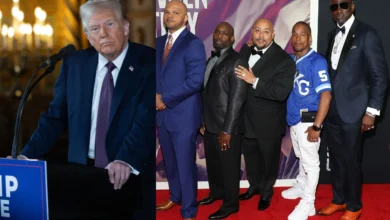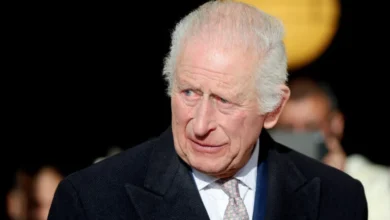“Court Confirms Trump’s Guilt: Sexual Abuse and Defamation Judgment Upheld in E. Jean Carroll Case”

In a significant legal setback, former President Donald Trump has lost his appeal in the sexual abuse and defamation case brought against him by writer E. Jean Carroll. The judgment, upheld by a federal appeals court, reaffirms the jury’s decision that found Trump liable for sexual abuse and defamation, awarding Carroll $5 million in damages.
Background of the Case
E. Jean Carroll, a renowned journalist and advice columnist, accused Trump of sexually assaulting her in a department store dressing room in the mid-1990s. She publicly revealed these allegations in her 2019 memoir, “What Do We Need Men For? A Modest Proposal.” Trump vehemently denied the accusations, claiming he had never met Carroll and suggesting she fabricated the story to sell her book.
Legal Proceedings
Carroll filed a defamation lawsuit against Trump in November 2019, arguing that his denials damaged her reputation and career. The case gained further traction when, in 2021, New York passed the Adult Survivors Act, allowing victims of sexual offenses a one-year window to file lawsuits for incidents that occurred outside the statute of limitations. Carroll then filed a separate suit for sexual battery under this new law.
In May 2023, a jury in the Southern District of New York found Trump liable for both sexual abuse and defamation, awarding Carroll $5 million in total damages. Trump immediately appealed the decision, maintaining his innocence and continuing to disparage Carroll publicly.
Appeals Court Ruling
The federal appeals court’s decision to uphold the original judgment marks a crucial moment in this protracted legal battle. The court’s ruling emphasized the jury’s findings that Carroll had provided credible evidence of the assault and that Trump’s statements about her were not only false but also maliciously intended to discredit her.
In their written opinion, the appellate judges highlighted the importance of accountability for public figures and the protection of individuals who come forward with allegations of sexual misconduct. The ruling is seen as a significant victory for Carroll and other survivors of sexual abuse, reinforcing the legal system’s role in addressing and rectifying such grievances.
Reactions and Implications
E. Jean Carroll expressed her relief and gratitude following the court’s decision. “Today is a victory not just for me but for all women who have suffered at the hands of powerful men who believe they are above the law,” she said in a statement. Carroll’s legal team also praised the ruling, describing it as a pivotal moment in the fight against sexual abuse and defamation.
Trump, on the other hand, responded with characteristic defiance. In a statement released through his spokesperson, he labeled the court’s decision a “witch hunt” and a continuation of politically motivated attacks against him. Trump’s legal team has indicated that they are considering further legal options, including a possible appeal to the Supreme Court.
Political Ramifications
This legal defeat comes at a critical time for Trump, who is actively campaigning for the 2024 presidential election. The judgment and its upholding by the appeals court are likely to have significant political ramifications, potentially influencing voter perceptions and campaign dynamics. Trump’s opponents are expected to leverage this ruling as evidence of his unsuitability for public office, while his supporters will likely continue to rally behind him, viewing the case as part of a broader effort to undermine his political career.
As the 2024 election approaches, the impact of this ruling on Trump’s political fortunes remains to be seen. What is clear, however, is that the legal challenges facing the former president are far from over, and this latest development adds another layer of complexity to his already controversial and tumultuous post-presidency.
In summary, the federal appeals court’s decision to uphold the judgment against Donald Trump in the E. Jean Carroll case marks a significant legal and moral victory for Carroll and sets a precedent for future cases involving allegations of sexual misconduct against high-profile individuals. The ruling underscores the importance of accountability and justice, regardless of an individual’s status or power.









